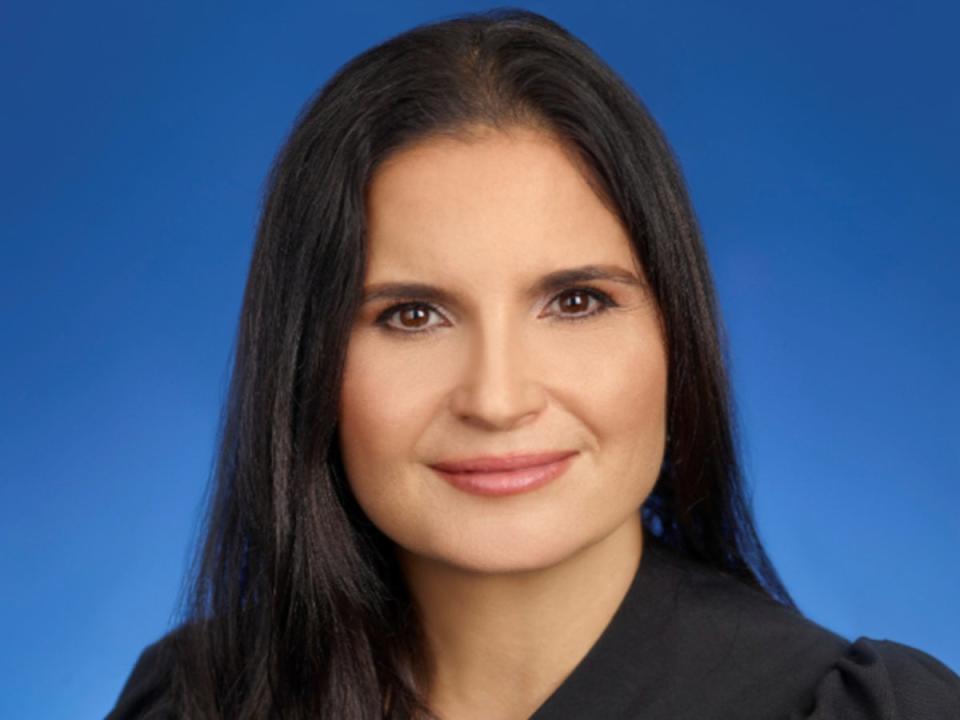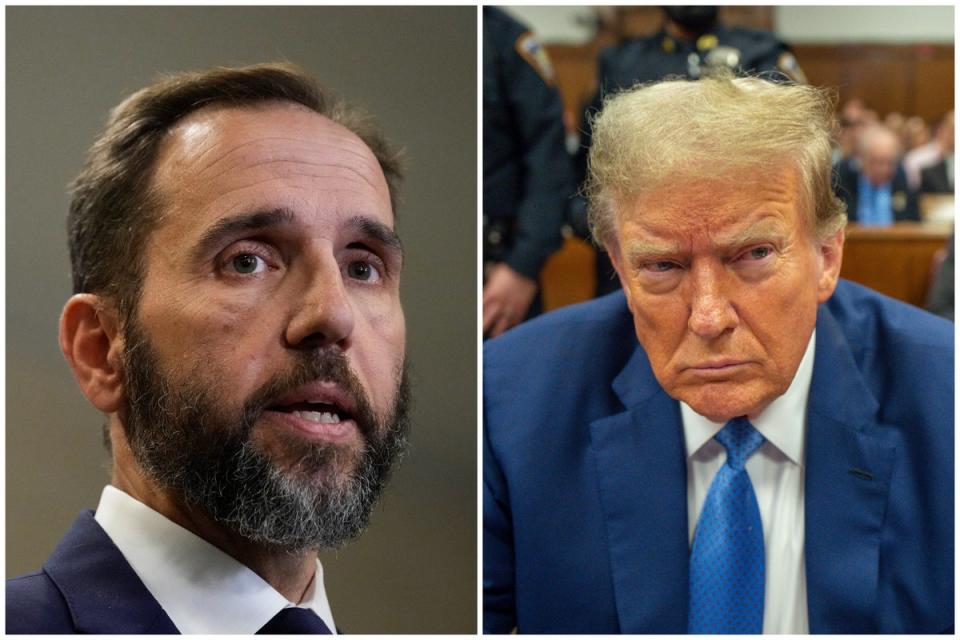Trump judge presses his attorneys on ‘shadow government’ claims in Jack Smith hearing
- Oops!Something went wrong.Please try again later.
- Oops!Something went wrong.Please try again later.
- Oops!Something went wrong.Please try again later.
- Oops!Something went wrong.Please try again later.
After hundreds of complaints against her, and one day after a report revealed that she ignored other federal judges who urged her to step away from the case, District Judge Aileen Cannon kicked off the first of a three-day series of hearings in Donald Trump’s classified documents case.
Cannon has indefinitely delayed a trial against the former president. So the hearings in her Florida courtroom are instead putting special counsel Jack Smith under a microscope.
On Friday, Trump’s attorneys and his allies argued that Smith — who brought federal charges against the former president — was unlawfully appointed as special counsel. Cannon, who was appointed to the bench by Trump, appeared somewhat skeptical of their long-shot arguments, which join a long list of motions to dismiss the case.
But she also questioned whether Attorney General Merrick Garland has oversight of the case, and took the unusual move of allowing nonparties who support Trump to argue in front of her.
At the center of Friday’s arguments was a claim from Trump’s attorneys that Attorney General Merrick Garland does not have legal authority to appoint a special counsel because, they argue, Smith is a “principal officer” who needs Senate approval.

Cannon appeared to cast doubt on that argument, telling attorneys that judges in a similar case involving Robert Mueller did a “fairly comprehensive review.”
She also pushed Trump’s attorneys to explain what they meant by saying that Smith’s position amounted to a “shadow government.”
“That sounds very ominous,” she said. “But what do you really mean?”
She asked whether that is “realistic” given the “well-defined” regulations surrounding independent special counsels, and that it wasn’t “fair” to “cast aspersions in that direction.”
It’s not unusual for attorneys to throw whatever they can at trying to dismiss the charges against their clients, but judges rarely hold hearings on them — and almost never invite people who aren’t involved with the case to argue on a defendant’s behalf in an open court.
After indefinitely delaying a trial, guaranteeing that the former president won’t be tried before Election Day, Judge Cannon has instead blocked off three days this month in her Fort Pierce courtroom to question Smith’s legitimacy and hear whether Trump should face a gag order, and if audio evidence against Trump should be tossed out.
On Monday, Cannon will hear more from Trump’s attorneys who argue that Smith was unlawfully funded.

She will also hear a request from prosecutors to restrict Trump from making any other incendiary claims connected to the case, after Trump and his campaign and allies repeatedly falsely claimed that the FBI was going to “assassinate” him when law enforcement agents searched his Mar-a-Lago compound.
Trump is already under limited gag orders in his New York criminal hush money case and in his federal election interference case, which he unsuccessfully tried to block from going into effect.
And on Tuesday, Cannon will hear more arguments from Trump’s attorneys to block potential audio evidence, including recordings that could be used as evidence of his alleged obstruction in the case.
The former president faces 40 separate charges stemming from allegations that he withheld hundreds of classified documents after leaving the White House for his private Mar-a-Lago compound in Florida, then conspired to obstruct government attempts to retrieve them.
He has pleaded not guilty.
His co-defendants Walt Nauta and Carlos De Oliveira, who are accused of helping Trump mishandle documents at the Florida property, have also pleaded not guilty.

